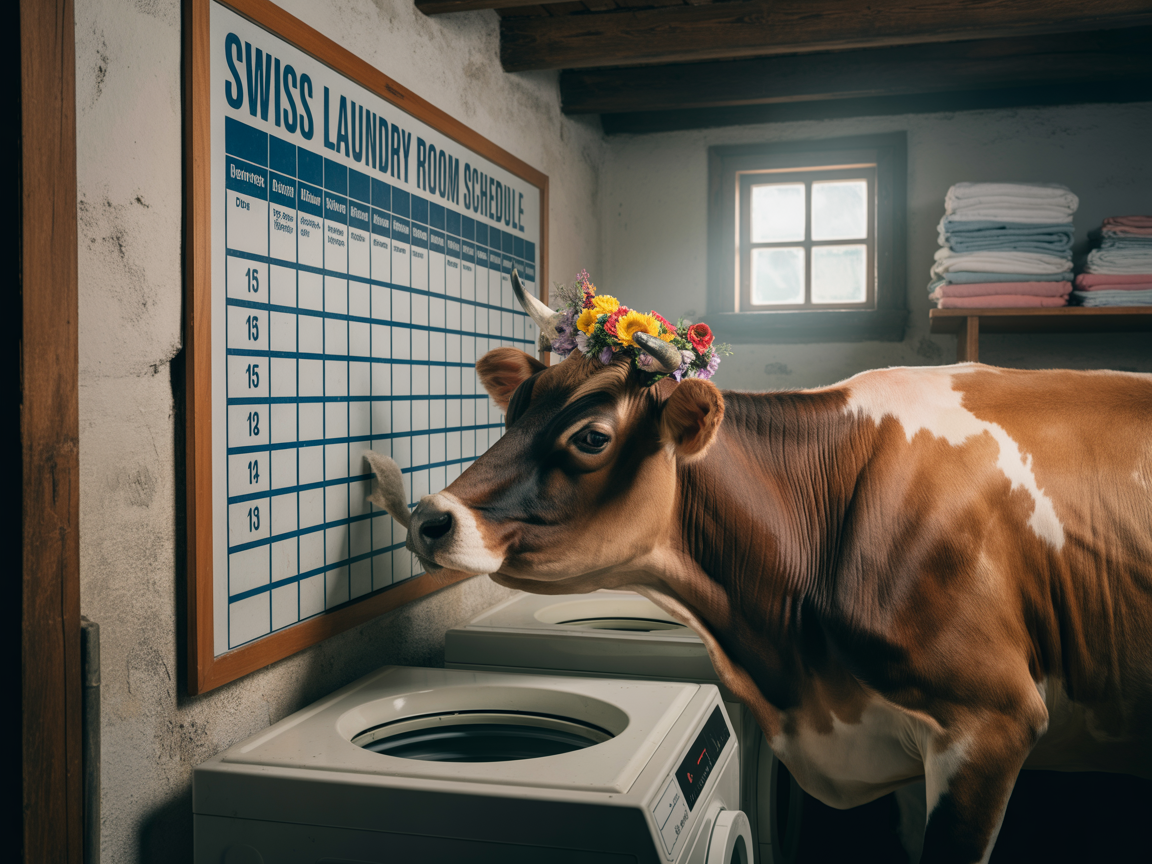Grocery Shopping in Switzerland: Your Complete Guide to Supermarkets and Smart Shopping
One of the first things every new expat in Switzerland needs to master is grocery shopping in Switzerland. While the country boasts high-quality food, it’s also known for its food costs Switzerland-wide. But don’t worry! With a bit of know-how about the main supermarkets in Switzerland, smart shopping strategies, and local customs, you can navigate the aisles like a pro and enjoy the fantastic produce and products on offer.
The Swiss Grocery Scene: What to Expect
High-quality standards and unique shopping culture define Swiss grocery shopping:
- High Quality and Freshness: Swiss supermarkets generally pride themselves on high standards for food quality, safety, and freshness, with a good selection of local and organic products.
- Shopping Hours: Standard hours are typically Monday to Friday (e.g., 8 am - 7/8 pm) and Saturday (often closing earlier, around 5/6 pm). Most supermarkets are closed on Sundays and public holidays, with a few exceptions like some shops at major train stations, airports, or gas stations. Plan accordingly!
- Payment Methods: Debit cards (Maestro, PostFinance Card, Debit Mastercard/Visa), credit cards, TWINT (Swiss mobile payment app), and cash are widely accepted.
- Bring Your Own Bags: Reusable shopping bags are encouraged. Plastic bags are usually available but will cost you a small fee.
- Cost: Yes, food costs in Switzerland are generally higher than in many neighboring European countries. However, quality is usually excellent, and there are ways to shop smart.
Major Supermarkets in Switzerland: Your Main Shopping Options
You’ll quickly become familiar with these key players:
Migros: The Orange Giant
Switzerland’s cooperative supermarket chain known for quality and variety:
- Overview: One of Switzerland’s two dominant supermarket chains, Migros is a cooperative (you can become a member). It’s often referred to by its orange branding.
- Product Range: Known for its extensive range of own brands, catering to different budgets:
- M-Budget: No-frills, budget-friendly line
- M-Classic / Migros Bio (Organic): Mid-range and organic options
- Migros Sélection: Premium/gourmet products
- No Alcohol/Tobacco: A distinctive feature – most standard Migros supermarkets do not sell alcoholic beverages or tobacco products. (However, Denner, which is owned by Migros, does, and some larger Migros formats like “Migros MMM” or VOI Migros Partner stores might have separate liquor sections or offerings).
- Store Formats: Ranges from small convenience “Migros Daily” or “VOI Migros Partner” stores to large “MM” and “MMM” hypermarkets with extensive non-food sections.
- Loyalty Program: Cumulus card. Collect points with every purchase, which can be converted into shopping vouchers or used for discounts with partners. Look out for Cumulus promotions!
Coop: The Green Competitor
The sustainability-focused cooperative offering comprehensive grocery solutions:
- Overview: The other major supermarket chain, also a cooperative. Coop often emphasizes sustainability and organic products.
- Product Range: Also features a wide array of own brands:
- Prix Garantie: Budget-friendly line
- Coop Qualité & Prix / Coop Oecoplan (Eco-friendly) / Coop Naturaplan (Organic): Mid-range, eco, and organic lines
- Coop Fine Food: Premium/gourmet products
- Sells Alcohol/Tobacco: Coop stores sell a full range of alcoholic beverages and tobacco products.
- Store Formats: Includes “Coop Pronto” (convenience stores, often at gas stations and open longer hours, including Sundays), standard supermarkets, “Coop City” department stores (often with large food halls), and “Coop Megastore” hypermarkets.
- Loyalty Program: Supercard. Collect “Superpoints” with purchases, which can be redeemed for goods, vouchers, or used with partners. They also have digital coupons and a “Hello Family Club” for families.
Discounters: Stretching Your Francs
Budget-friendly options for cost-conscious shoppers:
- Aldi Suisse: The German discounter has a significant and growing presence. Known for low prices, a smaller but efficient selection of mostly own-brand products, and weekly special buys (“Aktionen”).
- Lidl Schweiz: Another German discounter offering a similar model to Aldi – competitive prices, strong own-brand focus, and themed promotional weeks featuring international foods.
- Denner: A Swiss discounter (owned by Migros group, but operates separately). Strong focus on beverages (including a wide range of wines and spirits at good prices), tobacco, and a curated selection of basic groceries and special offers. Often found in smaller, neighborhood locations.
Beyond the Big Chains: Other Places to Shop
Specialty Food Stores & Delicatessens
- Manor Food / Globus Delicatessa: Upscale food halls located within Manor and Globus department stores. Offer a wide range of gourmet products, international specialties, fresh counters (cheese, meat, seafood), and prepared foods. Prices are higher.
Local Markets (Wochenmärkte / Marchés hebdomadaires)
Held once or twice a week in many towns and city squares. Excellent for fresh, seasonal, and often local produce, artisanal cheeses, bread, flowers, and sometimes meat/fish. Great atmosphere!
Farm Shops (Hofläden / Marchés à la ferme / Vendita diretta)
Buy directly from local farmers. Often offer seasonal fruit and vegetables, eggs, dairy products, honey, and homemade goods. Look for signs in rural areas.
Ethnic Food Stores
In cities and larger towns, you’ll find Turkish, Asian (Chinese, Indian, Thai, etc.), Italian, Portuguese, Balkan, and other specialty stores offering ingredients you might not find in mainstream supermarkets.
Traditional Specialty Shops
- Butchers (Metzgerei / Boucherie)
- Bakers (Bäckerei / Boulangerie)
- Cheese Shops (Käserei / Fromagerie)
For top-quality, specialized items and expert advice, these traditional shops are excellent, though generally more expensive than supermarkets.
Smart Shopping Tips: Managing Food Costs in Switzerland
While grocery shopping in Switzerland can be pricey, these tips can help you manage your budget:
Budget-Saving Strategies
Shop at Discounters for Basics: Aldi, Lidl, and Denner are great for staple items like pasta, rice, tinned goods, cleaning supplies, and often good value fruit and vegetables.
Embrace Supermarket Own Brands: Migros’ M-Budget and Coop’s Prix Garantie offer significant savings without a huge compromise on quality for many everyday items.
Hunt for “Aktionen” / “Actions” (Special Offers): All supermarkets have weekly promotions. Check their leaflets (often delivered to your home or available in-store/online) or their apps. This is a key way Swiss residents save money.
Buy Seasonal and Local Produce: Fruits and vegetables that are in season and locally grown are usually cheaper and taste better. Look for “Schweizer Produkt” or cantonal origin labels.
Use Loyalty Cards Effectively: Diligently scan your Migros Cumulus or Coop Supercard to collect points, which translate into cash vouchers or discounts. Pay attention to bonus point offers.
Technology and Apps
Explore Apps like “Too Good To Go”: This app connects you with shops and restaurants (including some supermarkets) selling surplus food at a reduced price towards the end of the day to prevent food waste.
Consider Weekly Markets for Produce: Sometimes you can find good deals on fresh produce at local farmers’ markets, especially towards closing time.
Planning and Mindful Shopping
Plan Meals and Make a Shopping List: This helps avoid impulse buys and ensures you only buy what you need.
Reduce Meat Consumption (if applicable): Meat is particularly expensive in Switzerland.
Border Shopping (A Note): Many people living near the borders of Germany, France, or Italy do some grocery shopping in these countries due to significantly lower prices, especially for meat, alcohol, and certain packaged goods. However, be aware of Swiss customs allowances for importing goods to avoid duties and taxes. This is more of a planned excursion than a daily solution for most.
Understanding Swiss Shopping Culture
Sunday Closures
Important: Most shops, including supermarkets, are closed on Sundays. Plan your weekend shopping accordingly!
Recycling and Waste Disposal
Switzerland has a highly efficient but very specific recycling system. You’ll need to separate PET bottles, glass (by color), aluminum, paper, cardboard, etc. General waste often requires specific taxed bin bags (e.g., Züri-Sack in Zurich), which add to your grocery bill if bought at the supermarket.
Online Grocery Shopping and Delivery
- Migros Online (formerly LeShop.ch) and Coop.ch: Both major players offer comprehensive online grocery shopping with home delivery services. This can be very convenient, especially for bulk purchases or if you don’t have easy access to a car. Delivery fees and minimum order values apply.
- Other smaller or specialized online food retailers also exist.
Essential Swiss Products to Try
Must-try Swiss food products from the supermarket:
- Swiss Cheese: Emmentaler, Gruyère, Appenzeller, Raclette, Fondue mixes
- Swiss Chocolate: Many brands available
- Birchermüesli: Traditional Swiss breakfast
- Rösti: Pre-made or ingredients to make it
- Cervelat: Traditional Swiss sausage
- Local Breads: Zopf on Sundays
Frequently Asked Questions
Q1: Are credit cards widely accepted in Swiss supermarkets?
Yes, major credit cards (Visa, Mastercard) and debit cards (Maestro, PostFinance Card, Debit Mastercard/Visa) are widely accepted in almost all Swiss supermarkets. Mobile payment solutions like TWINT are also very popular.
Q2: Why doesn’t Migros sell alcohol or cigarettes in most of its stores?
This dates back to the founding principles of Migros by Gottlieb Duttweiler, who had concerns about public health and addiction. While Migros now owns Denner (which sells alcohol/tobacco) and some larger Migros formats or partner stores have specific permissions, the policy largely remains for standard Migros supermarkets.
Q3: How do loyalty cards like Cumulus (Migros) and Supercard (Coop) work?
You scan them at checkout to earn points on your purchases. These points can then be converted into shopping vouchers (e.g., CHF 5 voucher for 500 Cumulus points), used for discounts on specific products, or redeemed with partner companies (e.g., for leisure activities, fuel). Both also offer digital apps with coupons and promotions.
Q4: Is tap water safe to drink in Switzerland (to save on bottled water)?
Absolutely! Swiss tap water is of exceptionally high quality and is perfectly safe to drink throughout the country. Many public fountains also provide drinking water. This is a great way to save money and reduce plastic waste.
Q5: What are some typical Swiss food products I should try from the supermarket?
Definitely try Swiss cheese (Emmentaler, Gruyère, Appenzeller, Raclette, Fondue mixes), Swiss chocolate (many brands!), Birchermüesli, Rösti (pre-made or ingredients to make it), Cervelat (sausage), and local breads (Zopf on Sundays!).
Conclusion: Enjoying Swiss Grocery Shopping
Grocery shopping in Switzerland is an integral part of daily life. While food costs in Switzerland can be a consideration, the quality is generally excellent, and the range of products, from budget-friendly to gourmet, is vast. By understanding the main supermarkets in Switzerland, utilizing loyalty programs, hunting for promotions, and perhaps exploring local markets, you can manage your budget effectively and enjoy the diverse culinary offerings.
Remember, for broader help with settling in Switzerland, including local orientation which might cover your first shopping trips or familiarizing yourself with your neighborhood, check out resources and services listed on ReloFinder.ch. Companies like Prime Relocation can also offer such initial settling-in support.
Disclaimer: Product availability, prices, and store policies can change. This guide offers general information. Always check in-store or on official supermarket websites for the most current details.





